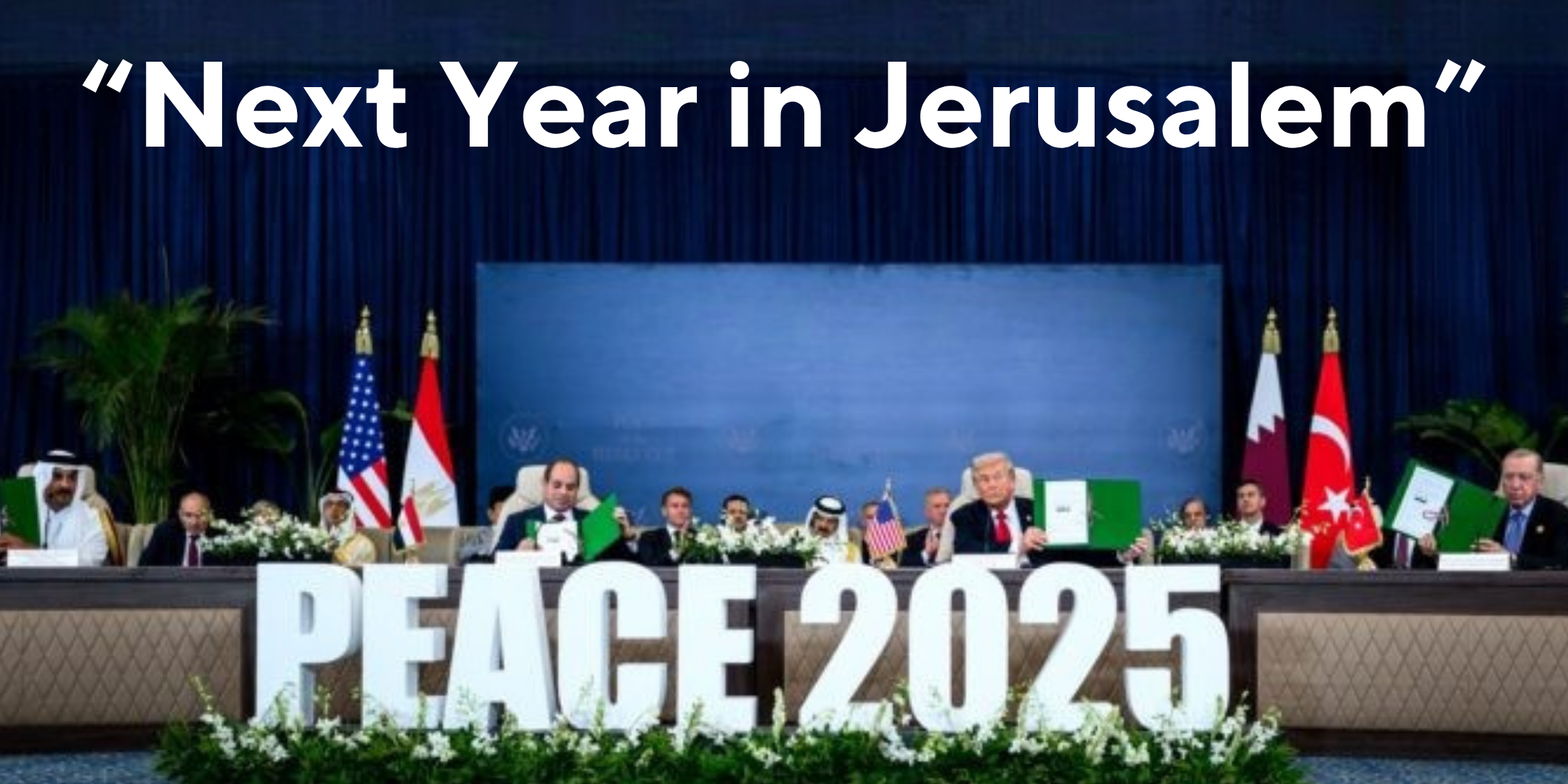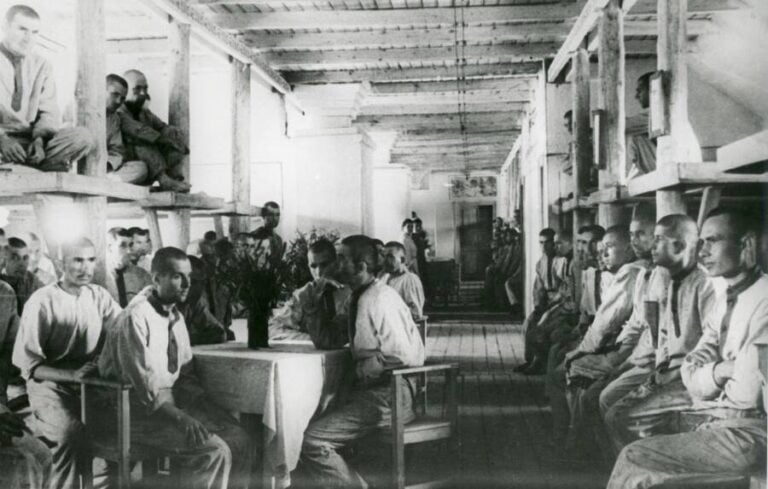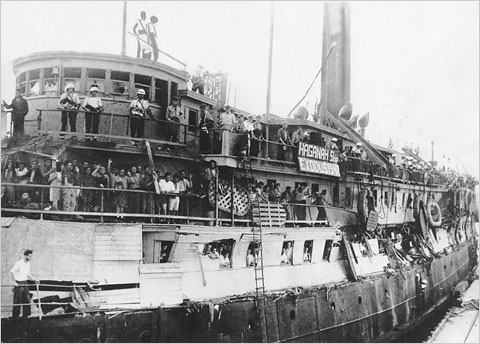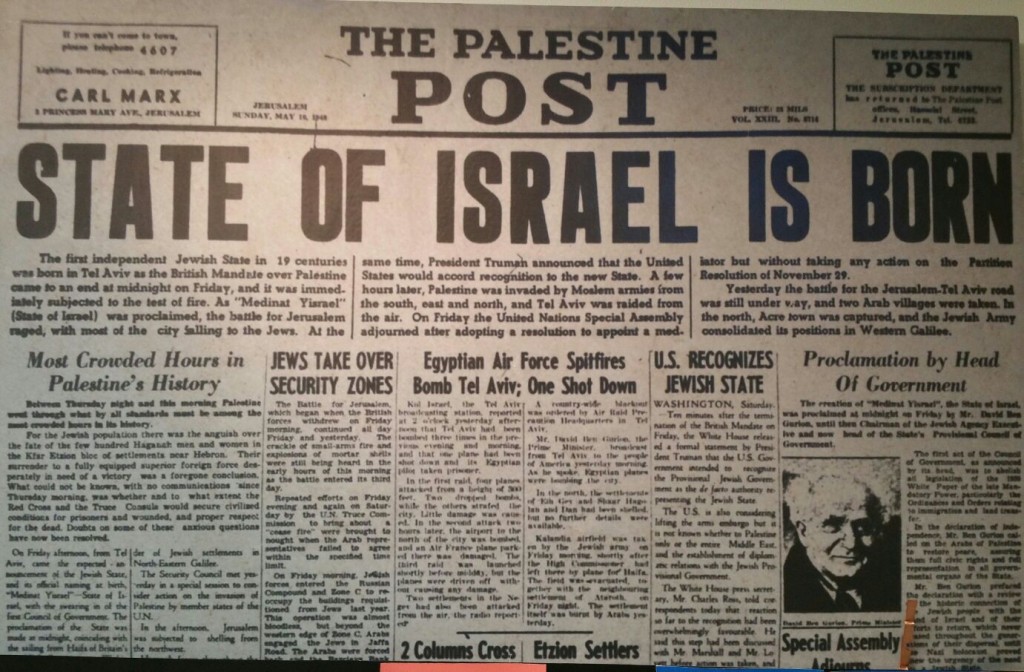
For thousands of years, Jews have concluded every Sabbath — and certainly Rosh Hashanah, the Jewish New Year — with the same words: “Next year in Jerusalem.”
It was a deeply rooted declaration of longing: “Though we did not return to our homeland this year, our hope is to enter it next year.”
“Next year in Jerusalem” wasn’t merely a phrase repeated out of tradition; it was a prayer filled with earnest expectation — a belief that God would one day keep His promises to His covenant people, no matter how long the wait.
In 1943, deep in the snows of Siberia, a Jewish couple named Isaac and Miriam Hurwitz whispered those exact ancient words their ancestors had spoken for centuries:
“Next year in Jerusalem.”
They were prisoners of exile—starving, freezing, clinging to life in a Soviet labor camp after fleeing the Nazis. When Passover came, they tore bits of black bread to use as matzah, filled a tin cup with water, and recited the story of Israel’s deliverance from Egypt. They then closed their Seder with a simple statement of faith:
“Next year in Jerusalem.”

After the war, their village lay in ruins and their families were gone. Having no other place to turn, they joined other refugees aboard a rusted cargo ship named Exodus 1947, bound for Palestine. Tragically, British gunboats stopped them, sending them back to detention camps in Cyprus. Behind barbed wire, they celebrated Passover once again — the same cup, the same words.

And one year later, when the State of Israel was born in 1948, Isaac, Miriam, and their son David finally stepped onto the soil of Zion. Once the Passover came around, they paused as always at the end. But this time something was different. For the first time, they could loudly proclaim:
“This year, thank God, in Jerusalem.”

With the recent release of hostages, families reunited, bombs ceasing, and peace accords signed, our world has much to celebrate.
And as special as the recent news is, if we focus on one key aspect of what’s at stake, the physical land — the dirt, we could say (Hebrew adam from which we get Adam, since he was formed from dirt) — it can only go so far. The spiritual longing to enter something greater than territories, boundaries, or lands still remains. This hope—this rest, as the Bible calls it—is eternal and far exceeds anything this earth has to offer.
.png)
What “rest” is the author of Hebrews referring to? It is the once-for-all peace settlement between fallen men and women and their Most Holy God — a feat made possible only through the work of Christ on the Cross.
It is true, residing in a land flowing with milk and honey is enticing and rewarding, but only as a foreshadowing. Our soul’s ultimate peace can only be found when it is inextricably linked to Christ.
Two remarkable quotes come to mind along those same lines—both from author Philip Yancey:
“The visible world is not the only world. It is a mere hint, a rumor of what God has prepared.”
“Our deepest hungers are not proof that life has failed us, but proof that this life is not enough.”
I’ll conclude with an amazing experience I had three years ago this fall. It happened when a very brief window of opportunity opened, allowing me to bid final farewells to my mom. She was inching ever closer to the outstretched arms of our sweet Savior, Jesus. He’d been calling her by name for weeks. We were sure it was Him—not only because He told us so, “The sheep listen to His voice, and he calls His own sheep by name and leads them out”— but also because she told us so:
“Who keeps calling me? I can hear all these people calling out. But there’s one voice that stands out above the rest. It’s much louder, and is calling me by name.”
For the next few weeks, my mother never came to and was not expected to be cognizant again. The Lord was ever so gracious to grant us a few more minutes.
What do you say, off the cuff with no time to prepare, to someone you love dearly and won’t see again for a given time?
“Momma, I can’t wait to see you again at the last Resurrection, ok? It’s going to be so incredible, isn’t it? I can’t wait to see you again at the Resurrection.”
With that, she nodded, with the slightest downward motion of her chin, which was all her failing frame could muster. Within hours, she would slip from this world into the next. It was the most exhilarating and yet equally painful moment of my entire life.
So what does this have to do with peace in the Middle East, next year in Jerusalem, and everything recounted above? A lot. There exists a peace that surpasses all understanding, and it is available to all mankind, regardless of which parcel of land your feet may currently be planted on. It’s there for the asking — but like any free gift, you must open your hands, and in this case, your heart, to receive it. I’m talking about a real-time relationship with the living Jesus. He’s not on the Cross; He was resurrected and is alive — very much so. And He is near you.
But to enter His rest, you must completely surrender your life to Him. How does that happen? You pray something like this:
“Lord Jesus, I’ve sinned against You and others and desperately need Your forgiveness. I believe You died on the cross for me and rose again from the grave. You lived the perfect life I could not live and died the brutal death I deserved to die—all because of Your overwhelming and immeasurable love for me. I now surrender 100% of myself to You and receive 100% of Your sacrifice for me. Help me live my life from this point forward, fully dedicated to serving You.”
If you pray this prayer — or something similar, as long as it aligns with God’s Word and comes from your heart — you and I, along with everyone who has ever trusted Christ, can rest assured: we will meet again.
“Not yet — perhaps, but one day soon. Maybe next year in the New Jerusalem.”